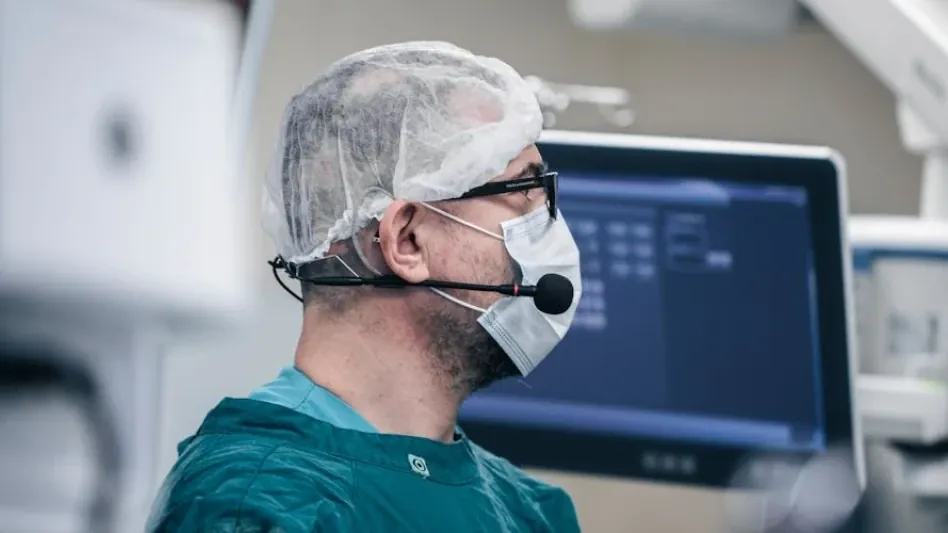India has made substantial strides in modernizing its healthcare system through innovative technologies, collaborative efforts, and digital education. This multifaceted approach is driving the sector towards better patient care, efficient management, and a tech-savvy healthcare workforce.
Integration of Health Management Information System (HMIS)
Streamlining Data for Better Healthcare Delivery
A primary focus of India’s healthcare modernization efforts revolves around integrating the Health Management Information System (HMIS) with other public health information systems. Spearheaded by Union Health Secretary Apurva Chandra, this initiative is designed to alleviate the workload of health functionaries and ensure the timely and accurate upload of data. The impetus for this integration is grounded in the “Health Dynamics of India” report, which provides a comprehensive overview of manpower and infrastructure metrics within the National Health Mission. This report reveals the pressing need for a streamlined data system to enhance decision-making processes and overall healthcare delivery.
The integration of HMIS aims to create a unified and efficient platform for data entry and analysis, thereby reducing the manual workload and minimizing human errors. Health functionaries across the country have often been bogged down by the need to manually input data into disparate systems, a task that is not only time-consuming but also prone to inaccuracies. By adopting a unified HMIS, healthcare professionals can quickly and easily access crucial data, which fosters a more effective response to public health needs. This data-driven approach is essential for strategic planning and resource allocation, enabling healthcare systems to address issues more proactively and efficiently.
Improving Efficiency and Data Accuracy
The transition to an integrated HMIS represents a significant move toward improving the efficiency and accuracy of healthcare data management in India. With a unified data system in place, healthcare providers can quickly retrieve patient information, track disease outbreaks, and monitor treatment outcomes, all of which contribute to more timely and informed decision-making. This streamlining of data processes is particularly beneficial in rural and underserved areas where resources are limited, and the burden of manual data entry can be overwhelming for health workers.
Moreover, an integrated HMIS supports a decentralized approach to health data management, allowing various stakeholders, including policymakers, researchers, and healthcare providers, to access and analyze data relevant to their specific needs. This democratization of data ensures that everyone involved in healthcare delivery has the information they need to make better decisions. As the system evolves, it promises to be a cornerstone in building a robust, responsive, and resilient healthcare infrastructure in India.
Advancements in AI for Women’s Health
Tackling Major Women’s Health Issues
The University of Mumbai has positioned itself at the forefront of leveraging artificial intelligence to address significant women’s health issues, focusing on conditions such as polycystic ovary syndrome (PCOS), breast cancer, and cervical cancer. By harnessing AI, researchers aim to achieve early detection and develop precise treatment plans for these prevalent conditions. Collaboration with hospitals is crucial for this initiative, as access to patient case studies provides the raw data needed to build robust AI models. These efforts are aligned with global trends that emphasize the importance of integrating AI in healthcare to improve outcomes and enhance patient care.
AI’s potential to revolutionize women’s health lies in its ability to analyze vast datasets quickly and identify patterns that might not be apparent to human eyes. This capability is particularly valuable in diagnosing conditions like breast cancer and cervical cancer at early stages when they are most treatable. For PCOS, AI can help identify the multifaceted symptoms and hormonal imbalances that characterize the syndrome, leading to more personalized and effective treatment plans. These advancements underscore a future where AI-driven healthcare can offer more accurate diagnoses, better treatment options, and improved overall health outcomes for women.
Strategic Collaborations for Enhanced Research
To bolster its research capabilities, the University of Mumbai has entered into strategic partnerships with prestigious institutions such as Purdue University and Saint Louis University. These collaborations are designed to pool resources and expertise, enabling more advanced research into AI applications for women’s health. Additionally, the University of Mumbai is exploring a potential partnership with the Indian Institute of Technology Bombay, which is also engaged in similar AI-driven health projects. These partnerships are pivotal in developing cutting-edge AI models that can bring substantial improvements to women’s healthcare.
The collaborative efforts extend beyond merely sharing data; they involve joint research projects, knowledge exchange, and mutual support in overcoming technical challenges. By working together, these institutions can accelerate the pace of AI research and development, ultimately leading to innovations that could transform the way women’s health issues are addressed. Such collaborations not only enhance the quality of research but also foster a spirit of innovation and cross-disciplinary learning that is necessary for tackling complex healthcare problems.
Digital Education for Healthcare Professionals
AI Courses for Medical Professionals
Recognizing the growing importance of artificial intelligence in healthcare, the International Institute of Information Technology Hyderabad has introduced an online AI course tailored specifically for healthcare professionals. This 12-week program, which has enrolled over 200 participants, is designed to equip medical practitioners with the essential knowledge and skills required to evaluate and implement AI technologies in clinical settings. Developed in collaboration with IHub-Data and the National Academy of Medical Sciences, the course aims to bridge the knowledge gap in AI technology among healthcare professionals, ensuring that they are prepared to integrate these tools effectively into their practice.
The curriculum of the AI course encompasses both theoretical and practical aspects of AI in healthcare. Participants learn about the fundamental principles of AI, machine learning algorithms, and the ethical considerations associated with AI implementation. Additionally, the course includes hands-on training in using AI tools for tasks such as diagnostic imaging, predictive analytics, and personalized medicine. This comprehensive approach ensures that healthcare professionals not only understand the technology but are also capable of applying it to real-world clinical scenarios.
Practical Applications of AI in Healthcare
A significant focus of the AI course is on the practical applications of artificial intelligence in healthcare settings. Participants are taught to assess the suitability of different AI technologies for various medical tasks, from patient diagnosis to treatment planning and beyond. By understanding the strengths and limitations of AI, healthcare professionals can make informed decisions about which technologies to adopt and how to integrate them into their practice. This knowledge is critical for improving patient outcomes and enhancing the overall efficiency of healthcare delivery.
Moreover, the course emphasizes the importance of interdisciplinary collaboration in the successful implementation of AI technologies. Healthcare professionals are encouraged to work closely with data scientists, IT specialists, and other stakeholders to develop AI solutions that are tailored to the specific needs of their institutions. This collaborative approach not only fosters innovation but also ensures that AI technologies are used ethically and responsibly. As AI becomes increasingly integrated into healthcare, such educational initiatives are crucial for preparing the next generation of healthcare professionals to navigate the complexities of this evolving field.
Digitizing Hospital Staff Training
Collaborative Efforts for Training Efficiency
Cytecare Hospitals in Bangalore has undertaken a significant initiative to digitize its healthcare staff training processes through a partnership with MedLern. This collaboration aims to provide healthcare staff with updated learning resources and streamline training workflows via digital platforms. The digitized training program has played a crucial role in Cytecare Hospitals successfully completing the audit by the National Accreditation Board for Hospitals and Healthcare Providers, which underscores the institution’s commitment to maintaining high standards of patient care and safety.
The shift to digital training offers several advantages, including flexibility, accessibility, and the ability to keep training materials current. Healthcare staff can access training modules at their convenience, ensuring that they remain up-to-date with the latest practices and protocols. This approach is particularly beneficial in a rapidly evolving field like healthcare, where ongoing education is essential for maintaining high standards of care. By digitizing training processes, Cytecare Hospitals can ensure that all staff members receive consistent and comprehensive training, regardless of their location or schedule.
Commitment to Quality and Safety Standards
India has significantly advanced its healthcare system through the integration of modern technologies, collaborative ventures, and enhanced digital education. These efforts collectively aim to transform the sector by bringing about improved patient care, streamlined management, and a technologically adept healthcare workforce. In recent years, India has also embraced telemedicine, allowing patients in remote areas to access medical expertise without the need for extensive travel. This not only reduces the burden on urban healthcare centers but also provides timely medical intervention to those in underserved regions.
Further, the adoption of electronic health records (EHRs) has led to better data management, enabling healthcare providers to access patient information swiftly and accurately. This development is crucial for offering personalized treatment plans and improving overall health outcomes. Public-private partnerships have played a pivotal role in propelling India’s healthcare forward, fostering innovation and resource sharing. The government has also launched various initiatives aimed at increasing healthcare accessibility and affordability for its citizens. These comprehensive strategies collectively signify India’s commitment to building a more efficient and equitable healthcare system, poised to meet the demands of a growing and diverse population.









